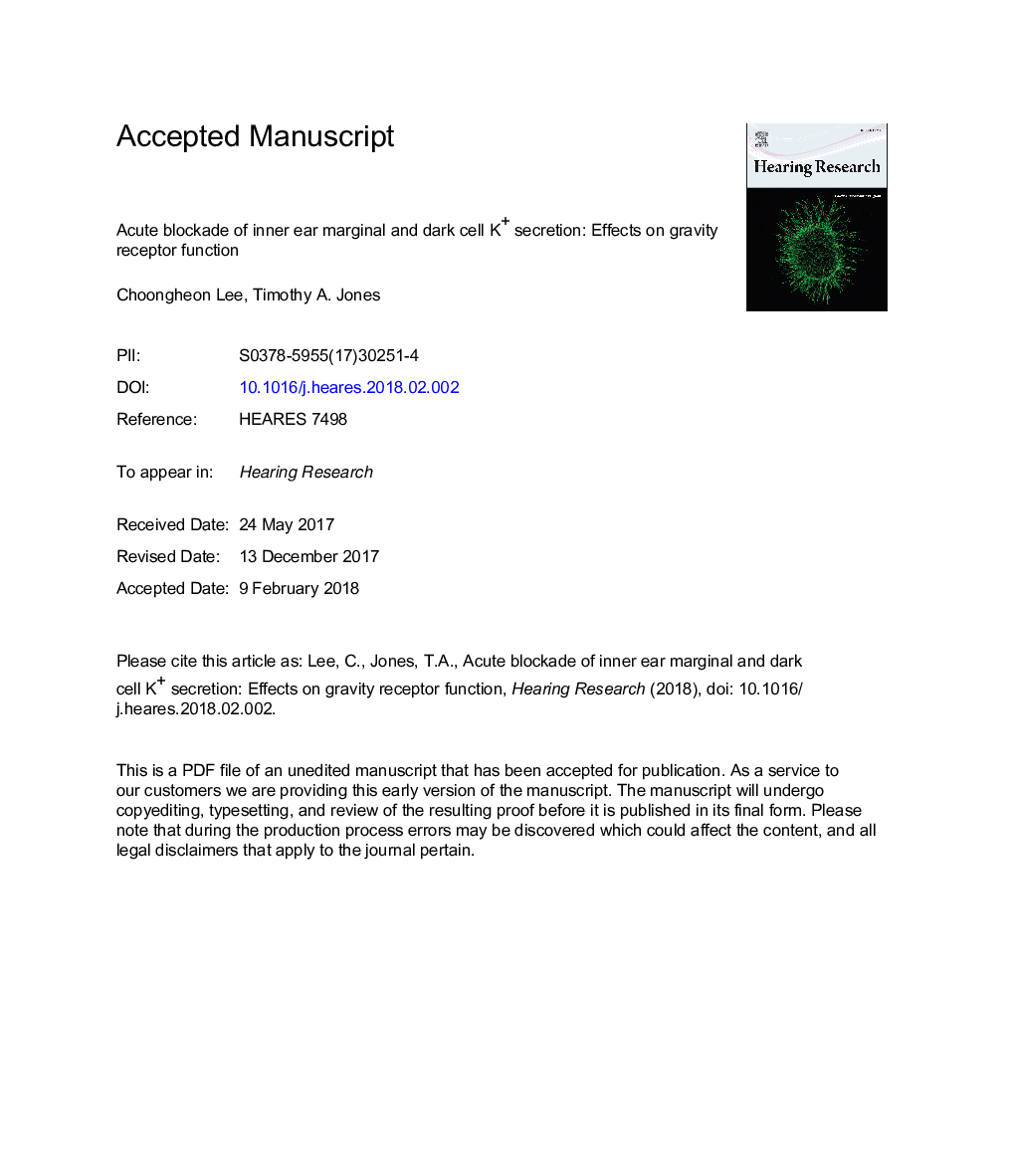| Article ID | Journal | Published Year | Pages | File Type |
|---|---|---|---|---|
| 8842384 | Hearing Research | 2018 | 21 Pages |
Abstract
Specific pharmacological blockade of KCNQ (Kv7) channels with XE991 rapidly (within 20â¯min) and profoundly alters inner ear gravity receptor responses to head motion (Lee et al., 2017). We hypothesized that these effects were attributable to the suppression of K+ secretion following blockade of KCNQ1-KCNE1 channels in vestibular dark cells and marginal cells. To test this hypothesis, K+ secretion was independently inhibited by blocking the Na+-K+-2Cl- cotransporter (NKCC1, Slc12a2) rather than KCNQ1-KCNE1 channels. Acute blockade of NKCC1 with ethacrynic acid (40â¯mg/kg) eliminated auditory responses (ABRs) within approximately 70â¯min of injection, but had no effect on vestibular gravity receptor function (VsEPs) over a period of 2â¯h in the same animals. These findings show that, vestibular gravity receptors are highly resistant to acute disruption of endolymph secretion unlike the auditory system. Based on this we argue that acute suppression of K+ secretion alone does not likely account for the rapid profound effects of XE991 on gravity receptors. Instead the effects of XE991 likely require additional action at KCNQ channels located within the sensory epithelium itself.
Related Topics
Life Sciences
Neuroscience
Sensory Systems
Authors
Choongheon Lee, Timothy A. Jones,
